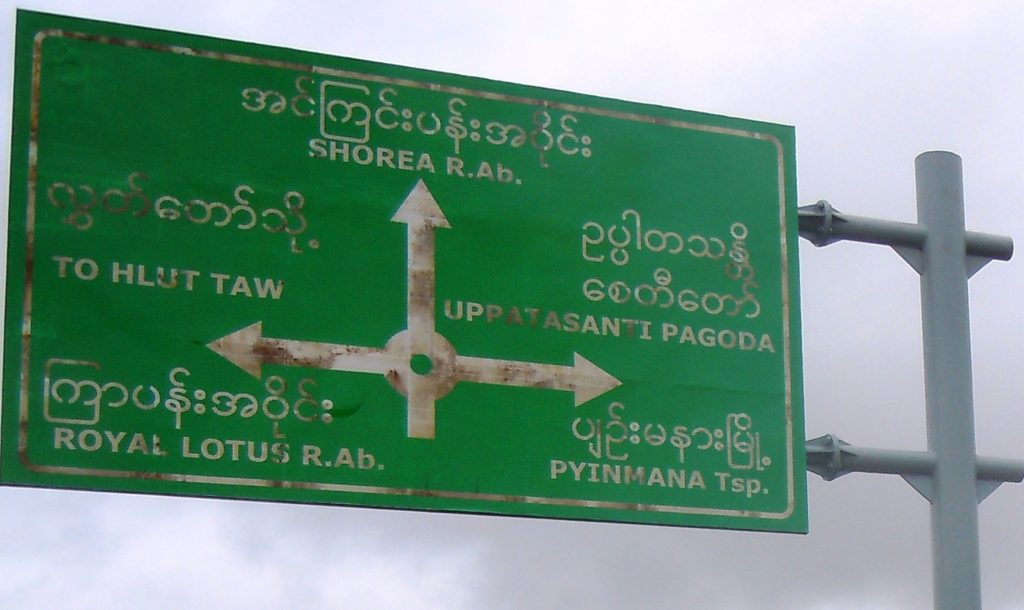This column was first published at The Myanmar Times on Wednesday, 22 April 2015
As the economy continues its bustling run – fuelled by frontier-market optimism – it’s worth taking stock of an economic issue that rarely gets the attention it deserves. With so many words spilled on high rents and over-priced hotel rooms, there’s barely any room at the inn for discussion about wages, particularly the pay of the decision-makers who keep the entire system in order.
With around 1 million civilian employees, the Myanmar civil service reaches the length and breadth of the country. While some people still labour under the misapprehension that rank-and-file civil servants were the handmaidens of dictatorial excess, they are almost always, in fact, the very embodiment of understated Myanmar values.
These civil servants do the jobs that need to be done: processing forms, assessing new legislation, managing local disputes and implementing central government fashions. It is a largely thankless set of tasks: Few notice when things are done right, with courtesy and success. It’s easy to accumulate stories of miscommunication or ill-will. The simple reality is that most Myanmar civil servants just get on with their jobs.
Those jobs do not pay much. A lower desk clerk can expect to take home K150,000 a month. That might seem a lot in the impoverished hills of Chin State, or for a young, single man or woman without any other responsibilities, but it only just covers the costs for those commuting between Yangon and Nay Pyi Taw, and makes a modest contribution to the growing bills for a family in urban Myanmar.
For many, a weekly commute between Yangon and Nay Pyi Taw costs at least K15,000, which, once incidentals and other charges are taken into account, can quickly mount to K100,000 a month. That’s just to make the journey to Nay Pyi Taw each Sunday, and back on Friday afternoon.
Given that wages are so low, it’s no surprise that the government has decided to raise pay rates three times in three years. According to Thura U Shwe Mann, this is his proudest achievement as speaker of the Pyi-daungsu Hluttaw. It gives hundreds of thousands of usually hard-working people a fighting chance to survive in an increasingly difficult economic environment, where inflation quickly erodes spending power and the relative value of capital over labour increases day-by-day.
To put it in perspective, a senior government officer of the deputy director level, who may be responsible for hundreds of staff, a considerable budget and set of operations, is now being paid K310,000 a month. This gives them a chance to save a bit more each week, after expenses for travel and food are taken care of.
Families without other income streams will still, however, need to make careful decisions and certainly benefit from non-salary income. Ownership of real estate has helped some to generate wealth, particularly through rents, although these can’t be counted on for the long term.
Another issue is that the pay rates for civilian government officials are yet to be re-aligned with their military counterparts. The equivalent of a deputy director in the army is a lieutenant colonel. They are paid K410,000 a month and have access to extra allowances if they are deemed deserving of “danger pay”. This means that a lieutenant colonel is actually paid more than a deputy director general – one of the highest ranks in civilian government service – despite being the equivalent of two ranks lower.
The two-tiered system, which was introduced in 2006, already leads to resentment among those civilians who feel they deserve equal treatment. It also reinforces the sense among military officers, even those of middling rank, that they are more important and more valuable than their civilian peers. It ensures that the two chains of command don’t work together as smoothly as they should. And it introduces a significant structural flaw which could, in time, make Myanmar’s internal affairs even harder to manage.
Raising pay rates – for civil servants, but also for ministers, parliamentarians and many others – ensures that these jobs are still attractive to qualified candidates. But many civil servants have already weighed up their alternatives and are looking for the exit. Private firms and international organisations are usually the beneficiaries of the training and experience that former civil servants bring to the table. A talented deputy director would likely command US$2000 a month in the private sector – six or seven times their government wage.
Giving Myanmar’s civil servants enough to live on is one way of ensuring that the reforms ordained from on high are actually implemented on the ground. It is these nameless and faceless public servants who are expected to get down to steady business – and their duties will continue regardless of who wins the next election, or the one after that. It is such continuity of official capacity that will ensure Myanmar’s infrastructure continues to improve, that its schools and hospitals can leapfrog into the 21st century, and that its people have new confidence in their justice system.
 Facebook
Facebook  Twitter
Twitter  Soundcloud
Soundcloud  Youtube
Youtube  Rss
Rss 